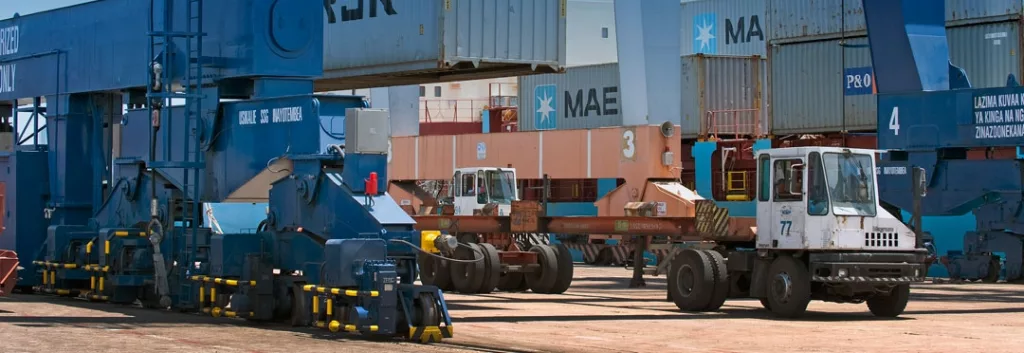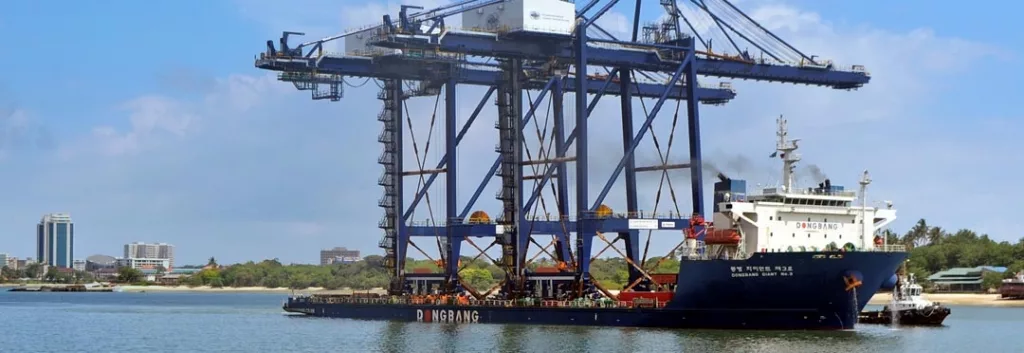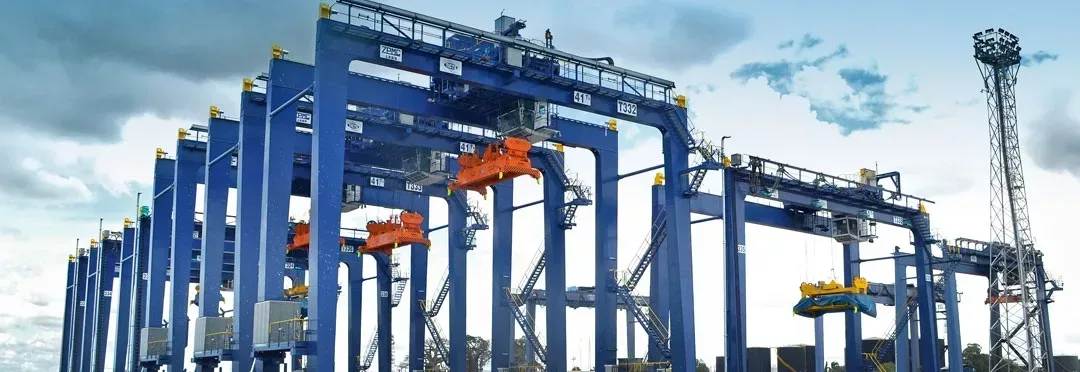As the largest specialised container terminal in Tanzania, TICTS (Tanzania International Container Terminal Services) has built an unrivalled reputation in the country for efficiency and capacity over the years, and is now looking towards even more refined structures and processes in order to maintain its prominent influence long into the future.
INTRODUCTION
Located at the continentally significant Dar es Salaam Port, TICTS’ inception in 2000 signified a pivotal moment for the site itself; with the extent of investments and operations conducted ever since proving its worth beyond all doubt.
“As the largest specialised container terminal in Tanzania, Tanzania International Container Services manages the container handling activities at Berth 08, 09, 10 and 11 and the Inland Container Depots at Kurasini and Ubungo,” explains the Company’s Chief Executive Officer (CEO), Jared Zerbe. “Since 2000 TICTS has handled more than five million TEUs (twenty foot equivalent units) which is more than 75 percent of the Tanzania Sea Trade; playing a significant role in the supply chain to and from Tanzania and the landlocked countries in Eastern, Central and Southern Africa.
“Over the years since 2000, TICTS has made more than US$100 million in investments which have significantly improved productivity and efficiency to the Port’s users.”
As a subsidiary of Hutchison Port Holding Limited (HPH), under the multinational conglomerate, CK Hutchison Holdings Limited, TICTS’ specialties across vessel discharge and loading, container storage, warehousing, container stuffing and destuffing, and customs verification have epitomised the flexibility and scope that has facilitated its growth over the past 17 years.
Zerbe continues: “The Company has highly evolved from handling only 120,000 TEUs in 2000, to a forecasted more than 500,000 TEUs in 2017.
“TICTS is one of the most efficient terminals in Africa and has one of the best terminal operating systems allowing us to serve our customers more efficiently and accurately than other regional terminals.
“Our customers can rely on us to handle things efficiently, having confidence in our systems and corporate governance as well as security of our facilities, which – for developing countries – is especially important.”

PROFESSIONAL MANAGEMENT
Investments to enforce this role within Tanzania’s trade operations have included those around new equipment, IT systems, staff training and civil upgrades; an indictment of the responsibility that TICTS proudly carries in Dar es Salaam.
“As Tanzania’s premier specialised container Terminal, TICTS has strengthened its role as the country sea trade gateway through these investments, which have also instilled continuously improved vessel productivity, better landside efficiency, and enhanced customer service,” Zerbe says. “TICTS has remained committed to continually improving container terminal services through its professional management and highly motivated workforce.”
Landmark unveilings in recent years have included the introduction of the state-of-the-art terminal operating system, Ngen/RDS, in 2012; an investment into two new Panamax quay cranes and four rubber tyred gantry cranes in 2014; and a further two Panamax cranes in 2016.
Facilitating this modernisation is a soon-to-be introduced US$1 million EDP-related data centre set for completion in 2017; underpinning TICTS’ vigilant awareness of the evolving industry, and the partnerships it has in place to acquire such world-class equipment.
“We need to continue to invest and become smart and more efficient,” Zerbe emphasises. “We note that in our industry in Africa there are and more ports being developed in Africa, and especially in East Africa there are a lot of competing regional ports planning expansions. Also, as the world’s shipping industry consolidates, there will be more competition regionally and our customers will be in a stronger position in future.
“As a result, we have embarked on significant cost efficiency reviews in the past year to be able to control costs better and to look for ways to refocus. This will allow us, overall, to be more efficient and offer better services to our customers.”

A BETTER WORK ENVIRONMENT
Online payments and paperless transactions are just two examples of TICTS’ strategy moving forward as it looks to make process approvals and customs processing more efficient.
And behind every new innovation or refinement is a host of talented and capable employees loyal to the Tanzania International Container Services cause and fully aware of the market’s demands.
“It is quite difficult to find capable staff in our industry in Tanzania so we need to work to develop existing staff to help them build up their abilities and knowledge,” Zerbe says. “We also have the advantage of having as our majority shareholder the world’s largest port operator, so we send many of our staff for training at our headquarters and regional centre.
“We have short, medium and long-term staff development plans to promote staff into more advanced positions as they grow in ability and skills.”
The culmination of such concerted investment, personnel development and innovation is the ability to handle larger vessels in the future, supported by enhanced customer efficiencies and interaction at office level.
“I expect everything will be able to be online in the future and our customers won’t need to come into our customer service centres, so I want to be able to offer even more payments via mobile phone; because I believe in many ways, countries like Tanzania are way ahead in areas like mobile phone payments via companies such as Tigo Pesa and Vodacom Pay,” Zerbe details.
Away from the Port entirely, TICTS’ Tanzanian responsibilities are set to extend more proactively into areas of corporate social responsibility as it looks to become more involved in the community, while this dedication to individual enrichment will be applied to its employees through the creation of a better work environment.
Ultimately, it is these small – yet significant – tweaks which will lay the foundations for its core operations to flourish in the years to come.
Zerbe concludes: “Clearly we want to also look for value-add business that leverages our current model, and to this end we have been looking to improve the overall physical condition of our facilities to create both a better work environment and a more efficient terminal.
“I think we are in good shape now but I expect we can continue to really optimise our facilities and business model as well, as we look for future growth.”































